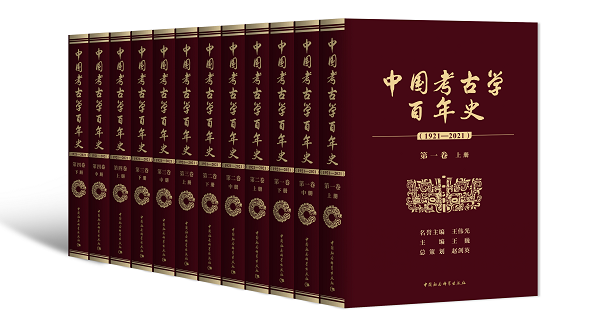

Wang adds that the book also follows how new methodologies and theories in archaeology surfaced in China, as well as their lasting influences.
"They're analyzed from the perspective of global academia and, as such, can provide references for upcoming studies," he says.
Zhao Jianying, head of China Social Sciences Press, considers the publishing of One Hundred Years' History of Chinese Archaeology (1921-2021) as significant and demonstrates cultural confidence.
"The time that witnessed the birth of archaeology in China was also a period when our country faced a moment of crisis," Zhao recalls. "In the early 20th century, confronted with strong Western cultural strength, there might have been a sense of inferiority. However, archaeology changed the mindset of the Chinese people, playing a vital role in building up national confidence.
"In the past century, archaeology has performed its duty of revitalizing a nation," he says.
Zhao also notes that the book is a key to establishing formats of archaeology with Chinese features.
"Modern Chinese archaeology was introduced from the West, and its early-stage practice showed strong overseas influence," he says. "But a century's development has nurtured our own traditions. Chinese archaeology is no longer a copy of its overseas counterpart."
Human civilizations vary from region to region, and Chinese civilization has its own characteristics, he adds. "So we cannot copy and paste Western theories that explore the origin of civilizations. Such a book will help us to form our academic framework and thus get the voices of our scholars heard more effectively on an international stage."
Huo Wei, a professor at Sichuan University in Chengdu, is one of the authors of the book. He says that the book highlights many academic fields in China, which were once dominated by overseas scholars but are now hot spots in cross-border academic exchange, due to fruitful work by Chinese scholars.